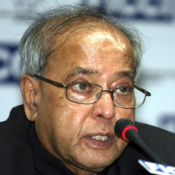 Relations between the commerce and finance ministries have improved with new personalities at the helm of affairs, says A K Bhattacharya.
Relations between the commerce and finance ministries have improved with new personalities at the helm of affairs, says A K Bhattacharya.
Differences between the commerce ministry and the finance ministry over policy issues have been quite common.
In the good old days, the finance ministry would prepare detailed notes on how expensive various export incentive schemes were and the commerce ministry, in turn, would argue the incentives were critical to achieving higher exports growth and even make public its own calculations on the actual revenue losses of the government.
The 1991 reforms reduced the need for airing such differences. Narasimha Rao scrapped many export incentives, including the cash compensatory support. With such subsidies gone, the finance ministry's objections were limited to specific duty exemptions to boost exports.
Once a year, the commerce minister would unveil major amendments to the Export-Import (EXIM) policy. Since many of these would depend upon the finance ministry making changes in duty levels, exporters and importers would remain tense until clarity emerged on whether the finance ministry would accept the proposals for duty concessions.
Officials in the two ministries would wonder why the two ministers did not meet before the announcement of the EXIM policy or its amendments. Once the two ministers agreed on the proposed duty concessions, the government would have guaranteed the sanctity of a policy announcement and trade would not face any uncertainty over the export-import policy changes.
Even finance ministers learnt the importance of announcing only those policy changes in their Budget speeches, that the administrative ministries had already approved.
Remember Yashwant Sinha announcing labour policy changes, privatisation of Indian Airlines and winding up of departments to reduce government staff in his Budget speeches. Even though these decisions were part of the Budget speech, the administrative ministries did not initiate any move to implement them. Indeed, these decisions are still on paper.
That lesson was strong enough for finance ministers to eschew any policy announcement over which they did not have direct control. So, if it was a question of accepting the Kirit Parikh Committee's recommendations on oil prices, Finance Minister Pranab Mukherjee would only announce in his Budget speech that the government would soon take a view on them.
However, if it were a question of setting up the financial stability and development council, Mukherjee would make a bold announcement of that, realising that he would not encounter any resistance to his move on that issue.
Commerce ministers have not yet learnt this lesson, even though they now have a larger jurisdiction with the inclusion of the industry ministry portfolio under them. In the first five years of the first term of the United Progressive Alliance (UPA) government, Kamal Nath had a running battle with the finance ministry.
He would announce many decisions entailing duty changes, but the finance ministry would turn the other way. Nath would like to announce many tax incentives for the special economic zones (SEZs) that were being set up under his charge, but the finance ministry would not be too comfortable with those moves.
The commerce minister was doing his best to promote exports with the help of whatever incentives he could offer. The finance minister, on the other hand, was doing his best to plug revenue leakages.
The result was a kind of policy paralysis where one ministry's decisions or proposals were stuck because of another ministry's objections. There was need for the two ministers to talk to each other to break such an impasse.
The Cabinet Secretariat could also have intervened on such occasions. Even the prime minister should have stepped in. None of that happened.
The inescapable conclusion trade and industry drew was that the personalities of those in charge of the two ministries were responsible for the stalemate in economic policies on exports.
This became more clear when in UPA-II, Kamal Nath was moved to the Ministry for Road Transport and Highways and Palaniappan Chidambaram did not return to the finance ministry.
In other words, the finance and commerce ministries had two different personalities at the helm - Pranab Mukherjee (who had taken charge of the finance ministry in the last few months of UPA-I) and Anand Sharma, respectively.
The change is already visible. Anand Sharma had initially decided to announce the first round of amendments to the import-export policy this year after Mukherjee unveiled the first Budget of UPA-II.
He has now decided that there is no need for any major announcement of any policy amendments. Instead, whatever changes have to be made can be effected through necessary notifications. Already, the commerce and industry ministry has streamlined the system of issuing industrial policy notifications.
Civil servants in the two ministries admit to a more cordial relationship between the two major economic policy wings of the government and are confident that exports or SEZs would not suffer when the new policies under the direct taxes code and the goods and services tax come into force.
The short point is personalities at the helm of these two ministries have changed and economic policy-making seems to have become easier.